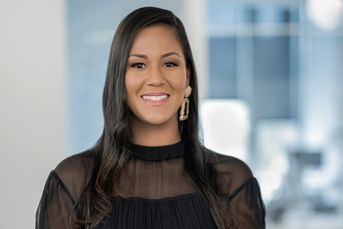How to be a mentor

Mentoring and sponsoring others is our responsibility, but establishing a relationship with a mentee takes thoughtfulness and time.
None of us got here completely on our own. We’ve all been fortunate enough to have someone along the way, be it a teacher, friend, family member or colleague, who pulled us out of our comfort zone, gave their time to raise us up and pushed us forward. Even one small piece of advice or a few words of encouragement could be the spark that lit the fire within and set a path to greatness.
Mentorship and sponsorship mean cultivating an entire relationship full of those moments — the counseling, teaching, strengthening and listening moments. To give precious time to mentor and sponsor others in this profession is not an option; it is our responsibility, and it is necessary.
Regardless of age, experience or accomplishments, a mentor relationship is valuable to professionals in all walks of life. The dynamic offers valuable insight and guidance from a new perspective and is an essential tool in helping both you and your mentee thrive in your endeavors.
Establishing a mutually beneficial mentor relationship takes thoughtfulness and time. You need to understand who your ideal mentee is, why you and that person would benefit from the mentorship and how to initiate and cultivate the relationship.
Chances are, there are hundreds of people who could be your mentee based on simple qualifications alone, but finding one who’s best for you goes beyond working in the same industry or sharing similar job histories. It’s important to seek out the individual who’s right for you, who is ready to blaze his or her own trail and just needs support along the way.
(More: Help more women succeed as financial planners)
Ask yourself, what is the purpose of the relationship, and how will it best serve both you and your mentee? Answering these questions will help guide you to a strong mentor relationship that is beneficial to both parties. You both have to be committed, and you have to follow through on the responsibility of your mentor role. You are setting the example.
In addition, be open to learning something new from your mentee. I’ve had mentors tell me that at times they have felt like I have mentored them! It’s a great feeling knowing that I can reciprocate being able to share my learning experiences with my mentor, and that they are open to receiving it.
Once you and your mentee find each other, make it official and establish a meeting schedule, complete with a time frame for the official mentor/mentee relationship. Although your relationship can last into perpetuity, it’s best to set a time frame with an official end date.
Upon initial establishment of the official mentorship, discuss in more detail the areas of support that are needed from your mentee, and write down several goals he or she can pick from that will be the main focus. Figure out the necessary steps to accomplish this goal, and encourage the mentee to take the first few steps immediately. For example, your mentee may be taking a lead role in an upcoming meeting. Role-playing and providing feedback is a valuable benefit from you.
In addition to identifying goals, help your mentee identify areas for improvement and brainstorm possible solutions. Let your mentee know there are going to be bumps in the road and things will not always go as expected. Resilience is the key to growth and learning; this will help him or her make better decisions in the future. Both success and failure can help build confidence and help the mentee see themselves and their capabilities.
You must believe in them, personally and professionally, so they can believe in themselves. A mentor does not exist only to impart information, but also to listen and be a confidant who the mentee feels comfortable enough with to share insecurities and ask uncomfortable questions.
They will be vulnerable with you; be empathetic and patient. This is a personal relationship and a professional one; you should care about your mentee and want him or her to be happy as well as successful. Constructive criticism and advice will not be followed without first building a foundation of patience, mutual respect and trust.
Be open to learning from your mentee, and always remember this is a mutually beneficial relationship. He or she could supplement gaps in your knowledge in this ever-changing environment.
If your mentee is the right person for you, you both will be able to grow from each other’s experiences, which makes for a strong working relationship.
(More: Networking plays a key role in helping women advisers advance)
Rianka R. Dorsainvil is founder and president of Your Greatest Contribution. She was the recipient of the inaugural Women to Watch Rising Star Award in 2017.
Learn more about reprints and licensing for this article.





